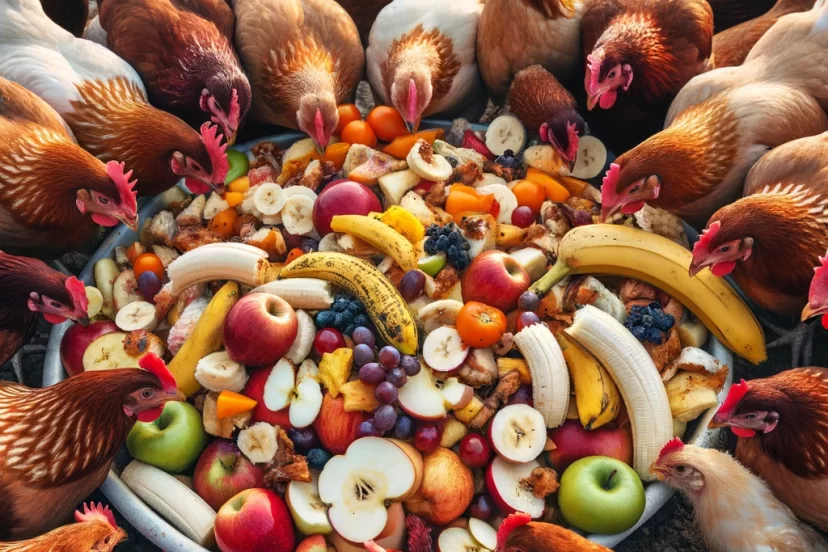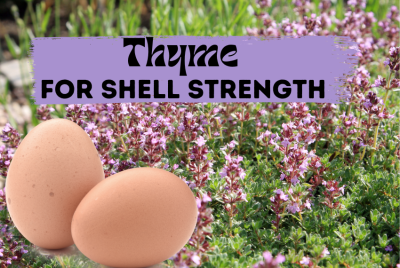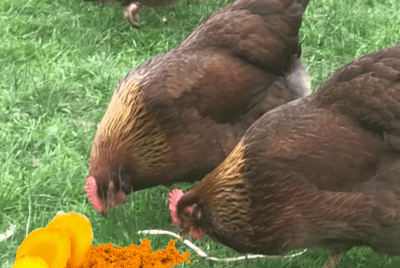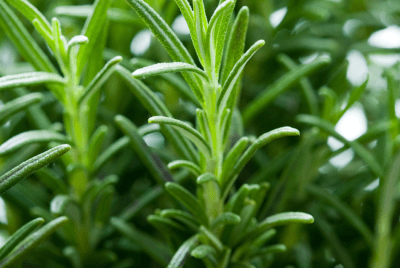Can Chickens Eat Banana: Grapes Tomatoes Apples Pineapples
Can Chickens Eat Banana: Grapes Tomatoes Apples Pineapples
As a breeder and lover of the poultry world, I often encounter questions about what treats are safe and beneficial for chickens. Understanding the dietary needs of chickens such as can chickens eat banana is crucial to know for their health and wellbeing. In this article, we’ll dive into the specifics of can chickens eat banana, or grapes, tomatoes, apples, and pineapples.
Introduction to Chickens’ Dietary Needs
Chickens, known for their versatility in diet, thrive on a balanced mix of grains, proteins, and fresh produce. However, when it comes to treats like fruits, it’s crucial to know what’s beneficial and what’s not. Not all foods humans enjoy are suitable for our feathered friends. This article delves into the world of chickens’ diets, specifically addressing whether they can safely eat banana, grapes, tomatoes, apples, and pineapples. Join me as we explore these options, ensuring your chickens receive both nutrition and variety in their diet.
Overview of the article – an chickens eat banana, grapes, tomaoes, apples and pineapples.
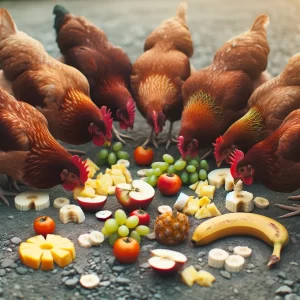
Importance of a balanced diet for chickens
The importance of a balanced diet for chickens cannot be overstated. Chickens, much like any other animal, require a diet that is rich in various nutrients to maintain their health, support growth, and ensure optimal egg production. A balanced diet for chickens typically includes:
Proteins: Essential for growth, feather development, and egg production. Sources include soybean meal, fish meal, and small amounts of meat.
Carbohydrates: Provide energy. Grains like corn, wheat, and oats are common carbohydrate sources in chicken feed.
Fats: Important for energy and overall health. Fats can be found in grains and added oils.
Vitamins and Minerals: Crucial for bone health, immune function, and overall well-being. These are often included in commercial feeds or can be supplemented with vegetables, fruits, and specific supplements.
Calcium: Particularly important for laying hens to ensure strong eggshells. This is often provided through oyster shells or specially formulated layer feeds.
Grit: While not a nutrient, grit is essential for digestion in chickens, as it helps grind down food in their gizzard.
A balanced diet not only keeps chickens healthy but also impacts their productivity in terms of egg quantity and quality. It can prevent a range of health issues, including malnutrition, obesity, and weakened immunity.
For backyard chicken keepers, ensuring a balanced diet means combining quality commercial feed with controlled portions of kitchen scraps and garden produce, always mindful of foods that are toxic to chickens. Regular monitoring of their dietary intake, along with observation of their behavior and physical health, helps in maintaining the right balance in their diet.
Can Chickens Eat Banana: A Potassium-Rich Snack
Bananas are a fantastic, potassium-rich snack for chickens, offering several health benefits. This soft, easily digestible fruit is high in vitamins, including B6 and C, which aid in strengthening the immune system and improving overall health. The high potassium content supports heart health and muscle function. Bananas also provide chickens with an energy boost, thanks to their natural sugars. However, they should be fed in moderation due to their sugar and carbohydrate content, which could lead to weight gain if overconsumed. Peeling bananas before offering them ensures they are safe and easy for chickens to eat, making them an ideal occasional treat.
Advantages of Bananas in a Chicken’s Diet
Incorporating bananas into a chicken’s diet brings several advantages. These fruits are packed with essential nutrients that are beneficial for chickens. Bananas are an excellent source of potassium, crucial for proper muscle function and heart health in chickens. They also contain vitamins B6 and C, which bolster the immune system and aid in maintaining healthy skin and feathers. The fiber content in bananas supports healthy digestion. Their natural sweetness makes them an appealing treat, encouraging chickens to eat. Bananas are also soft and easy to peck, making them suitable for chickens of all ages. As a nutritious treat, bananas can enrich a chicken’s diet when offered in moderation.
Considerations When Offering Bananas
When offering bananas to chickens, consider these points: Firstly, serve bananas in moderation due to their high sugar content, which can lead to obesity if overfed. Peel the bananas to avoid any pesticide residue and ease consumption. Chop them into small pieces to prevent choking and facilitate easier eating. Be mindful of overripe bananas; while safe, they can be too mushy and messy. Lastly, monitor your chickens for any digestive issues, as individual birds may react differently to new foods in their diet.
Bananas contain several nutrients that are beneficial for chickens:
Potassium: Essential for proper muscle function and overall cardiovascular health.
Vitamin B6: Aids in metabolism, red blood cell production, and nervous system health.
Vitamin C: Supports immune system function and helps in stress reduction.
Magnesium: Important for bone health and enzyme function.
Fiber: Aids in digestion and helps maintain a healthy digestive tract.
Carbohydrates: Provide energy, which is particularly beneficial for active chickens.
These nutrients make bananas a healthy, occasional treat for chickens, contributing to a balanced diet.
Can Chickens Eat Grapes: A Sweet Treat
Grapes can be a delightful treat for chickens, offering a burst of sweetness and hydration. These fruits are packed with vitamins, particularly vitamin C, and antioxidants, contributing to the overall health of your flock. When feeding grapes to chickens, it’s important to do so in moderation due to their high sugar content, which, if overconsumed, can lead to obesity and other health issues. Always ensure the grapes are pesticide-free and halved or quartered to prevent choking hazards. Introducing grapes as an occasional snack adds variety to their diet, making for happier, healthier chickens who enjoy pecking at these juicy morsels.
Benefits of Feeding Grapes to Chickens
Feeding grapes to chickens offers several benefits, making them a nutritious snack for your flock. Rich in vitamins, especially vitamin C, grapes boost the immune system of chickens, aiding in their overall health and vitality. They also provide a good source of hydration, especially during hot weather. The antioxidants present in grapes help in combating oxidative stress, contributing to the wellbeing of your chickens. Additionally, the natural sugars in grapes serve as an energy boost. The act of pecking at grapes can also be a stimulating activity for chickens, promoting natural foraging behaviors and reducing boredom in the coop. Remember, moderation is key to avoid health issues.
Cautionary Tips When Feeding Grapes
While grapes are a nutritious treat for chickens, there are several cautionary tips to keep in mind. Firstly, moderation is crucial. Excessive consumption of grapes, due to their high sugar content, can lead to obesity and related health issues in chickens. It’s best to offer grapes as an occasional treat rather than a regular part of their diet. Secondly, always ensure that the grapes are pesticide-free to avoid any toxic exposure. Additionally, grapes should be cut into smaller pieces to prevent choking hazards, especially for smaller breeds or young chicks. Lastly, observe your chickens for any adverse reactions after introducing grapes, as individual sensitivities may vary.
Can Chickens Eat Tomatoes: Are They Safe ?
Tomatoes can be a controversial topic when it comes to chicken feed, but they are generally safe for chickens if served correctly. The key is to ensure that the tomatoes are ripe and red, as green, unripe tomatoes contain solanine, a toxin harmful to chickens. The ripe fruit is rich in vitamins A and C, benefiting the chickens’ immune system and overall health. However, avoid feeding them the leaves and stems of the tomato plant, which also contain solanine. As with any treat, tomatoes should be given in moderation, ensuring they don’t replace the essential components of a balanced chicken diet.
Nutritional Value of Tomatoes for Chickens
Tomatoes offer significant nutritional value for chickens, being rich in essential vitamins and minerals. They are a great source of vitamins A and C, which are vital for maintaining good vision, strong immune systems, and overall health in chickens. Tomatoes also contain lycopene, an antioxidant that helps in preventing cellular damage. Additionally, they provide potassium and fiber, aiding in the digestive health of chickens. While they should not be the mainstay of a chicken’s diet, incorporating ripe tomatoes as an occasional treat can contribute positively to their nutritional intake, enhancing the variety and balance in their diet. Remember, moderation is key.
Potential Risks with Tomatoes
Feeding tomatoes to chickens comes with potential risks that require careful consideration. The primary concern lies in the green parts of the tomato plant, including leaves and stems, which contain solanine, a toxic substance to chickens. Unripe, green tomatoes also contain solanine and should be avoided. Overfeeding tomatoes, even when ripe, can lead to digestive upsets and may disrupt the balance of their diet. It’s essential to ensure that tomatoes are thoroughly washed to remove any pesticide residue. Lastly, introducing any new food, like tomatoes, should be done gradually and while closely monitoring the chickens for any adverse reactions.
Can Chickens Eat Apples: An Orchard Treat for Your Flock
Apples are a delightful orchard treat for chickens, offering both taste and nutrition. Rich in vitamins A and C, they support the immune system and overall health of your flock. The fiber in apples aids in digestion, promoting gut health. They’re also a source of antioxidants, which help protect cells from damage.
Health Benefits of Apples for Chickens
Apples serve as a nutritious orchard treat for chickens, providing a mix of essential vitamins and fiber. Rich in vitamins A and C, apples support immune health and feather quality in chickens. The fiber content aids in healthy digestion, an important aspect of chicken well-being. They are also a source of antioxidants, which combat oxidative stress. When offering apples, ensure to remove the seeds, which contain cyanogenic compounds, potentially harmful in large amounts. Cutting apples into small pieces prevents choking hazards. As a natural, tasty treat, apples can add variety and enjoyment to a chicken’s diet, contributing to their overall health.
Parts of the Apple to Avoid
When feeding apples, it’s important to remove the seeds, as they contain trace amounts of cyanide, harmful to chickens in large quantities. Serving them in small, manageable pieces ensures easy consumption. Apples, when given as a part of a balanced diet, can be a refreshing and healthy snack for chickens.
Can Chickens Eat Pineapples: Tropical Delight or a No-Go?
Pineapples, with their exotic flavor, can be a point of intrigue for chicken keepers. While they offer a burst of vitamin C and manganese, essential for tissue growth and bone health, their acidic nature raises questions about suitability for chickens. The high sugar content in pineapples also necessitates moderation to prevent health issues like obesity. When offering pineapples, it’s crucial to remove the tough, spiky skin and core, as these can be difficult for chickens to digest. Given in small, controlled amounts, pineapples can be a safe, occasional treat, adding diversity to your chickens’ diet while ensuring their overall health and well-being.
Pineapples in a Chicken’s Diet
Incorporating pineapples into a chicken’s diet can offer nutritional benefits when done correctly. Pineapples are a good source of vitamin C, vital for immune health, and manganese, essential for bone development and eggshell quality. They also provide a healthy dose of bromelain, an enzyme that aids digestion. However, pineapples should be given in moderation due to their high sugar and acidic content, which can upset a chicken’s digestive system if overconsumed. Ensure to remove the hard outer skin and core to prevent choking hazards. As a tropical treat, pineapples can add variety and enjoyment to your chickens’ diet in small, occasional servings.
Precautions with Pineapples
When feeding pineapples to chickens, certain precautions are necessary. Firstly, moderation is key due to the fruit’s high sugar and acid content, which can disrupt a chicken’s digestive system if overfed. Only offer pineapples as an occasional treat, not a dietary staple. It’s also crucial to remove the tough outer skin and the hard core, as these parts are difficult for chickens to digest and could pose a choking hazard. Ensure the pineapple is ripe and fresh, as overripe or fermenting pineapple can lead to digestive issues. By following these guidelines, pineapples can be a safe and enjoyable treat for your flock.
General Guidelines for Feeding Chickens Fruits
When feeding fruits to chickens, adhere to these general guidelines: Offer fruits as occasional treats, not exceeding 10% of their daily diet, to maintain nutritional balance. Always introduce new fruits gradually and in small amounts, watching for any adverse reactions. Remove seeds or pits from fruits like apples and cherries, as they can be toxic. Wash fruits thoroughly to eliminate pesticides. Chop fruits into small, manageable pieces to prevent choking. Lastly, avoid feeding overly sugary or citrus fruits frequently, as they can upset a chicken’s digestive system.
Portion Control and Frequency
Effective portion control and frequency are crucial when feeding chickens fruits. Treat fruits as a supplement, not exceeding 10% of their overall diet. Offer fruits in small, manageable portions to prevent overconsumption, which can lead to nutritional imbalances and health issues like obesity. Frequency is equally important; provide fruit treats 2-3 times a week, ensuring a varied diet. This approach not only maintains a nutritional balance but also keeps mealtime interesting for the chickens, encouraging natural foraging behaviors and promoting overall well-being.
Preparing Fruits for Chickens
When preparing fruits for chickens, cleanliness and safety are paramount. Start by thoroughly washing the fruit to remove any pesticides or chemicals. Cut fruits into small, bite-sized pieces to prevent choking and make it easier for chickens to eat. Remove any harmful parts like seeds or pits, especially from apples and cherries, which can be toxic. If introducing a new fruit, do so gradually to monitor for any adverse reactions. Offering a variety of fruits in moderation ensures chickens enjoy the benefits without any health risks.
Recognizing the Signs of a Healthy Diet in Chickens
Recognizing the signs of a healthy diet in chickens is vital for their well-being. Healthy chickens exhibit vibrant, full feathers and clear, bright eyes. They should have consistent, regular egg production and strong eggshells, indicating adequate nutrition. A balanced diet also results in active, energetic behavior and a strong immune system, evident through minimal sickness. Their droppings should be firm and well-formed, reflecting good digestive health. Any deviation from these signs, such as lethargy or irregular laying patterns, may indicate nutritional deficiencies or imbalances in their diet.
Indicators of Good Nutrition
Physically, chickens with a nutritious diet display vibrant, glossy feathers and maintain a healthy weight. Behaviorally, they are active and alert, showing keen interest in their surroundings. Nutritionally balanced chickens also have a strong immune system, evident in fewer illnesses and quick recovery from minor health issues. Consistent, regular egg laying with strong, well-formed shells is another sign of good nutrition. Healthy droppings, firm and well-shaped, further indicate a well-nourished chicken.
Warning Signs to Look Out For
When monitoring chickens’ health, certain warning signs indicate nutritional deficiencies or imbalances. Dull, ragged feathers can suggest poor nutrition. A drop in egg production, or eggs with thin, fragile shells, often points to a lack of essential nutrients like calcium. Lethargy or reduced activity levels can be a sign of an imbalanced diet. Changes in droppings, such as diarrhea or abnormal color, may indicate digestive issues. Unusual weight loss or gain is another warning sign. Monitoring these indicators can help in adjusting their diet to ensure optimal health.
Frequently Asked Questions
Can I feed citrus fruits to my chickens?
Citrus fruits like oranges and lemons are generally not recommended for chickens. Their high acidity and strong flavors can upset the chickens’ digestive system and potentially lead to health issues.
How often should I give fruit to my chickens?
Fruits should be given as a treat, not more than two to three times a week. This ensures that the chickens maintain a balanced diet without overindulging in sugary fruits.
Are there any fruits that are toxic to chickens?
Chickens should avoid fruits with pits or seeds containing cyanide, such as cherries and apricots. Also, avocados are toxic to chickens due to a substance called persin.
Do fruits replace the need for regular chicken feed?
No, fruits should only complement a chicken’s diet and not replace their regular feed. Chickens require a balanced diet consisting mainly of commercial chicken feed, which is formulated to meet their nutritional needs.
Is it necessary to peel and chop fruits before feeding them to chickens?
It is advisable to peel fruits treated with pesticides and to chop them into smaller pieces. This prevents potential exposure to harmful chemicals and reduces the risk of choking.
Conclusion: Can Chickens Eat Banana
In conclusion to can chickens eat banana, grapes, tomatoes, apples, and pineapples. Although these fruits can add enjoyable variety and essential nutrients to a chicken’s diet, they should be offered with care and moderation. A balanced diet, primarily consisting of quality commercial feed, is crucial for the health and well-being of chickens. By understanding and respecting these dietary needs, you can ensure a happy, healthy flock.
Summarizing Key Points to: Can Chickens Eat Banana
Answering yes to the question can chickens eat banana, grapes, tomatoes, apples, and pineapples shows they can be beneficial. They provide essential vitamins and minerals. However, it’s crucial to offer these treats in moderation, avoiding toxic parts like seeds and ensuring fruits are ripe and pesticide-free.
Encouraging Responsible Feeding Practices
It’s important to practice responsible feeding with chickens. While fruits offer nutritional benefits, they should complement, not replace, a balanced diet. Offering fruits in moderation, removing harmful parts, and ensuring variety are essential for your chickens’ health. By being mindful of these practices, you contribute to the well-being and happiness of your flock, ensuring they thrive under your care.

